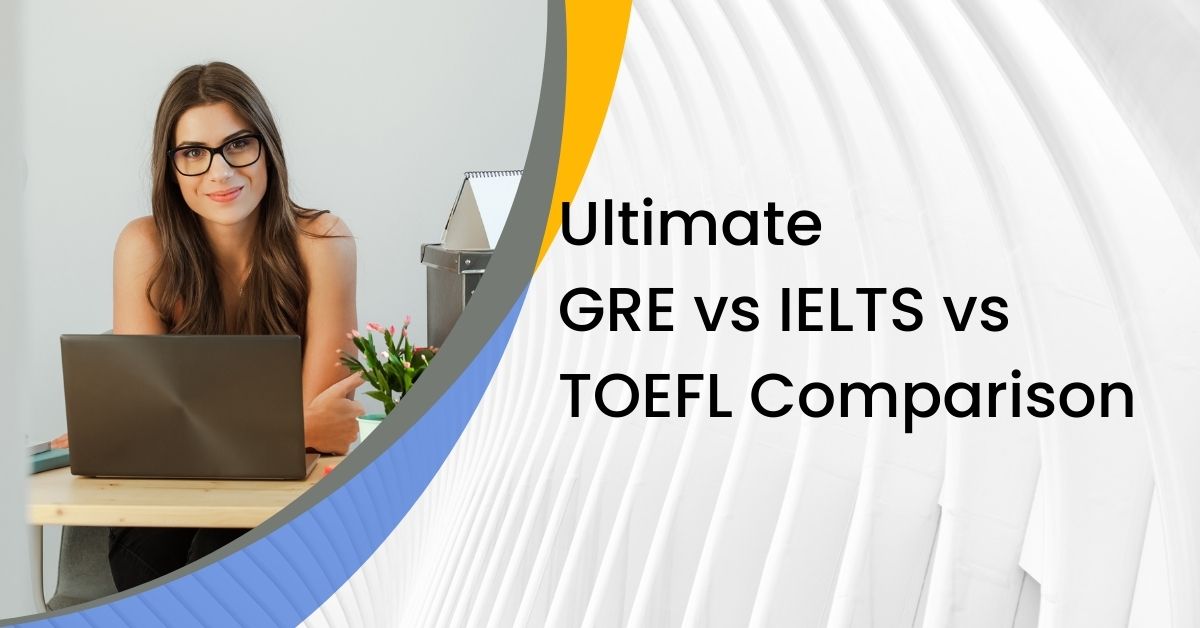IELTS vs TOEFL Which is Easier
When thinking about TOEFL vs IELTS which is easier, and which might be the better option for you, it’s interesting to see that while most people are familiar with IELTS as the go-to or de facto option, there are indeed other English language proficiency tests that you might also be considering. This article will take you through the Test of English as a Foreign Language, or TOEFL, and explore how it measures up alongside the IELTS examination.
To give you a brief overview, IELTS vs TOEFL Which is Easier, the TOEFL is owned by a North American Body, the Educational Testing Service (ETS), while IELTS is co-owned by renowned organisations in the UK and Australia – namely IDP Education, the British Council, Abroadgoer, and Cambridge Assessment English. While both tests share some similarities in the manner of their test types and their global credibility, there are still some differences that aspiring test-takers like yourself would want to take note of. To get a better understanding of both tests, here’s a broader overview that can help you choose between the two with greater ease.
Choosing between IELTS and TOEFL – make the right selection
IELTS test vs TOEFL: Spotting the Differences
One of the main differences between IELTS vs TOEFL which is Easier the two tests, IELTS test vs TOEFL, lies in the accepted English varieties when it comes to testing. Since TOEFL is owned by an American entity, TOEFL primarily accepts the use of American English in its tests. On the other hand, IELTS allows for the use of various standard English varieties, such as British, Australian, Canadian, and American. While this isn’t likely to be the biggest consideration for you when deciding on which test to go for, it doesn’t hurt to know!

Another notable difference is the length of the tests. The IELTS test typically lasts approximately two hours and 45 minutes. In contrast, while TOEFL used to be longer, the current TOEFL iBT test has been shortened and lasts around two hours as well, though you should factor in additional time for check-in and instructions. These differences in format and timing might influence which test better suits your concentration span and testing preferences.
IELTS Format Advantages
Looking closely at the format, IELTS presents several potential advantages for test-takers. In the Listening section, the inclusion of more varied sections with different task types, such as sentence completion and diagram labelling, might feel more intuitive and allow you to demonstrate your comprehension in multiple ways, rather than being limited to only multiple-choice questions, as in TOEFL. Similarly, the Reading test in IELTS, with its diverse question formats that can require suggesting titles or filling in tables, might better suit individuals who prefer to engage with the text more actively and give varied responses, compared to the primarily multiple-choice approach of TOEFL.

Perhaps one of the most significant differences lies in the Speaking test. IELTS features 3 test parts completed in a relatively short time, and importantly, it often involves a one-to-one oral interview with a qualified IELTS examiner. This face-to-face interaction can feel more natural and allow for a more nuanced assessment of your speaking abilities, potentially putting those who find speaking to a computer microphone in TOEFL less at ease. The shorter word limit in the TOEFL Writing vs IELTS Writing test’s Task 1 is also often seen as a benefit by many test-takers. Considering these points side by side, many find the IELTS format offers a more diverse and potentially less intimidating testing experience.
IELTS vs TOEFL calculation of scores
Are you perhaps a little confused about each test’s scoring systems? It’s true that while both calculations are completely valid despite using varying scoring systems, the way both test scores are understood and used might be assessed differently in different countries and by different institutions. To help clarify this, here’s a simple overview of how both scoring systems compare against each other alongside the Common European Framework of Reference (CEFR), which is another international benchmark used to assess language proficiency.
Looking at the comparison, IELTS uses a band scale from 0 to 9.0, with increments of 0.5. This scale aligns with the CEFR levels, ranging from B1 (scores 0-4) up to C2 (scores 8.5-9). On the other hand, TOEFL iBT provides a total score out of 120, with each of the four sections (Reading, Listening, Speaking, and Writing) contributing up to 30 points. When we map these TOEFL scores to the CEFR, we see that a B1 level corresponds to a score of 0-31, progressing to C1 at 94-120. Interestingly, from the provided information, it appears that IELTS scores can go up to the C2 level of CEFR, while TOEFL only goes up to the C1 level at most.
This suggests that even if your English language skills are comparable to a native speaker, a TOEFL certification might not fully reflect that proficiency level in the same way an IELTS score could. Therefore, when choosing between the two, it’s wise to consider which scoring system might be better understood or preferred by the institutions or organizations you are applying to.
IELTS has unique advantages
Beyond just the test formats, band scores, and test types, it’s essential to consider the global recognition of both IELTS and TOEFL difficulty. In this area, IELTS has a significant advantage. Among the numerous other English language proficiency tests available, IELTS is consistently held in high regard and is officially recognised by an impressive number – over 12,000 organisations and universities spanning across 140 countries worldwide.

Furthermore, this particular certification is even more widely accepted in key study destinations like the UK and Australia. Importantly, IELTS is also specifically recognised by the national immigration bodies of both Canada and the UK. So, if your plans involve pursuing academic opportunities or even considering immigration to any of these countries, then choosing to take the IELTS would undoubtedly be your safest and most widely accepted path forward.
Gearing Up for Success: Practice Makes Perfect
Since IELTS is generally more well-known among potential test-takers and language centres, the good news is that the availability of practice material for your preparation is practically endless. You can take a look at these materials that could be of significant use to you: official IELTS test preparation materials, the handy IELTS by IDP app, comprehensive resources like IELTS masterclass, and a wealth of IELTS free tests available online—feeling Ready to kickstart your IELTS journey? To conclude this comparison, it’s important to understand that there is no absolute “easier” test between IELTS and TOEFL, despite what some people say.
It all boils down to what you’re looking for, your personal preference, and crucially, what certification your desired university specifically accepts. However, if you want a test that gives you the best access to as many institutions worldwide as possible, IELTS stands out as the perfect choice for you. If you decide to take the IELTS test, remember that we’re here to help you every step of the way. Besides being the official co-owner of IELTS, IDP offers convenient test locations and a range of free test preparation materials specifically designed to support you. We encourage you to learn why you should take your IELTS test with us and book your IELTS test today to begin your exciting academic journey.







